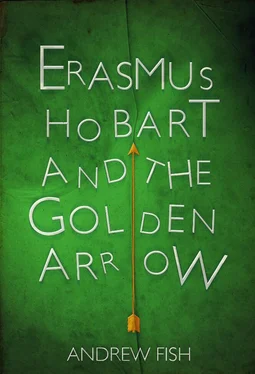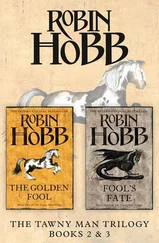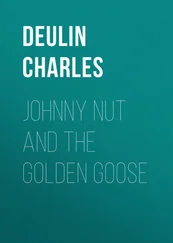Already it was rumoured amongst some in the first form – for whom anyone older than fourteen was pensionable – that Hobbit’s history lessons were taken entirely from personal experience. In a few years, when the current first form had been and gone, this would undoubtedly be accepted as fact by one and all.
As the Mini passed along the drive, pupils, alerted by the wheezing engine, hurriedly hid conkers and other health-and-safety-unfriendly possessions, putting on expressions of saint-like innocence until they were sure he was out of sight and that they were safe from discovery. Others were not so quick to react, nor were they as capable of hiding their mischief.
‘Atkinson! Davis! What are you doing with that?’ The voice of Erasmus Hobart was an attribute that made him a firm fixture of school sports days, carrying some distance across the school fields without the need for a megaphone.
‘What, sir?’ Atkinson replied. He attempted to conceal his contraband behind his back and looked at the master with a gaze of attentive innocence. It wasn’t easy: the teacher’s hazel eyes had a way of making your stomach try to hide in a corner. The boy’s eyes watered involuntarily as he tried to retain the teacher’s gaze.
‘That big stick,’ Erasmus persisted.
‘What big stick?’ Atkinson replied, sure that admitting the object’s existence after attempting to hide it would carry far worse penalties than continuing to pretend it wasn’t there.
‘That big stick behind your back.’
‘Big stick, sir? I can’t see a big stick.’
‘You can’t? Well I can. It’s six feet long and sticking above your head. Perhaps I should ask Mr Salmon to give you some remedial lessons. That way you’ll know that six feet is more than four foot five.’
Atkinson, realising when he was beaten, pulled the item in front of him and looked at it in surprise, trying to convey the impression he’d never seen it before.
‘Well?’ Erasmus inquired.
‘Sir?’
‘What is it?’
‘It’s a bow, sir.’
‘And?’
‘Sir?’
‘What are you doing with it? I trust you aren’t trying to shoot the school cat?’ In truth, Erasmus wouldn’t have minded this particular activity – he and the school cat had been engaged in a battle of wits since the rabid moggy had attempted to sink its claws into his leg on his first day.
‘No, sir,’ Atkinson protested. ‘It’s for the play. We’re doing Robin Hood, sir.’
‘Not with that you’re not,’ Erasmus told him. ‘Bring it here.’
‘Si-ir,’ Atkinson whined.
‘Here,’ Erasmus repeated, his voice going down in pitch and up in volume. It was a subtle change, but one to which experienced troublemakers had learnt to respond. Atkinson may not have been an experienced troublemaker, but he was still intelligent enough to surrender the bow into the master’s hand.
‘When can I have it back?’ he asked.
‘You can have it at the end of term and not before,’ Erasmus told him and his tone told Atkinson that any argument was about as futile as expecting divine help to part the waters of the Trent in search of a lost ball.
The boy looked down at his feet with a hangdog expression, awaiting whatever fate Hobbit had in store for him. Erasmus smiled at the tousled head. He wasn’t a cruel man – it wasn’t that long since his own scholarly career of mischief had come to an end – and the boy’s antics were scarcely as disruptive as – to take an example at random – creating a build-up of static electricity that separated a teacher from his wig. Since he knew Atkinson wasn’t the type to intend a major disruption, Erasmus decided on clemency. Not immediately, though: he waited until the boy glanced up then gave him a stern look, prompting him to examine his shoes even more minutely. Then, after he had waited for what he felt was an appropriate time, he dismissed the boy. Atkinson, grateful at being spared punishment, nodded politely before turning on his heel and running back to where Davis was waiting.
‘Atkinson!’ Erasmus called out after him.
Atkinson turned.
‘Walk. Don’t run.’
‘Sorry, sir,’ Atkinson called back and he then continued his journey at a more sedate pace.
After watching the boy for a few moments, Erasmus examined the bow with interest. It wasn’t the normal bit of twig and string you found attached to teenage boys; it had real tension in it. He tugged it experimentally, considering what it would do for his odds against the school cat. Then, realising he was still blocking the driveway, he tried to bring the bow in through the car window. This proved difficult, since the bow spanned roughly six feet, whilst the car was only about five feet from wing mirror to wing mirror. He eventually managed to wedge one end of the bow in the passenger’s footwell whilst the other end stuck out of the sunroof, giving the impression of a dodgem aerial. Driving carefully so as not to get the bow caught in any low tree branches, he proceeded along the driveway to his parking space, leaving a trail of wide-eyed children, many with their hands held firmly behind their backs.
The bow was cumbersome to carry from the car to the classroom. The passage between the two single-storey buildings which constituted the particular block was narrow, and only by holding the bow upright was progress possible. How the boy had managed to get the thing to school was a mystery.
At the end of the passage, Erasmus found himself faced with a door and a problem. Because this particular block of classrooms had been adapted from service buildings on the former manor, the doors were short and squat – presumably in order to force servants to duck and thus remember their place. The bow was, therefore, a foot taller than the door. Erasmus adjusted his grip on the briefcase in his left hand and reached for the door handle, attempting to manoeuvre the bow with his right hand as he did so. It was an unsuccessful effort: by the time one end was touching the wall behind him, the other was pressed firmly against the lintel above the door. He stared at the weapon thoughtfully, the physicist in him consumed by the interesting problem in three-dimensional geometry this presented. He tried shifting his posture, attempting to bend the bow to his will by careful application of weight. The bow, however, had other ideas and remained stubbornly straight.
And it was as he was so occupied that the door-handle turned purposefully beneath his hand. Erasmus, caught off-balance by the sudden absence of door, nearly fell into the corridor beyond. It was the presence of the petite, blonde woman in the corridor which prompted him to arrest his descent and stumble to an awkward state of balance.
‘Sorry,’ he said.
‘Sorry,’ she said near-simultaneously.
‘What for?’ they said in unison.
‘It doesn’t matter,’ said Erasmus. ‘I’m afraid I was a bit preoccupied.’
‘Ah,’ said the woman, smiling. ‘What’s her name?’
Erasmus looked at the bow. ‘I don’t think he gave her one,’ he said. ‘One of the boys, you see.’
‘One of the boys?’ The woman’s eyebrows arched slightly as she found herself worrying whether the man was a lunatic. It would be a disappointment if he were, she considered.
‘Yes. I confiscated it from him this morning. Why they bring these things into school, I don’t know.’
‘Oh.’ The relief was palpable in the woman’s voice, but Erasmus didn’t notice it. He did, however, notice the woman as if for the first time – largely because it was the first time.
‘Have we met?’ he asked.
‘No. My name’s Ellen.’ Ellen extended a hand. Erasmus reached out, but was prevented by the bow. Frowning at the weapon, he let it go, gripped and shook before returning to his charge.
Читать дальше











